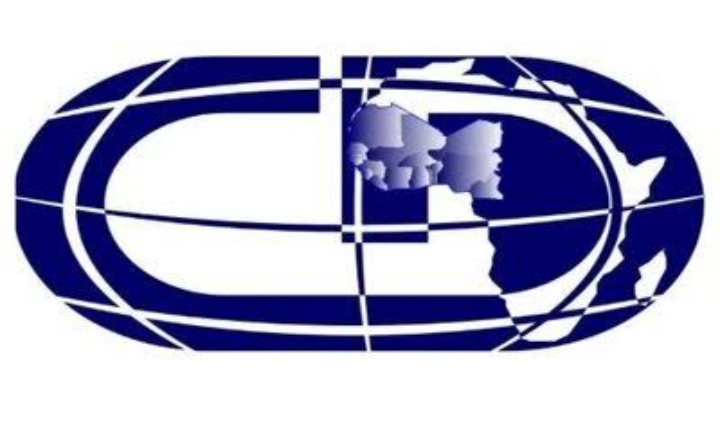During Jammeh’s 22-year rule, human rights violations ranging from enforced disappearances, unlawful arrests and killings, torture, sexual and gender-based violence, and persecution of real or perceived political opponents, characterised The Gambia.
The Centre for Democracy and Development (CDD) has recommended restitution for victims of human rights abuses during the 22-year long rule of former Gambia’s president, Yahya Jammeh.
In its new report titled “Documenting Dictatorship: Truth, Reconciliation and Reparation in the Gambia”, the CDD said reparation is a critical area in Gambia’s Truth, Reconcilation and Reparations Commission (TRRC) process.
Yahya Jammeh, aged just 29, took control of The Gambia in a military coup in July 1994.
He sought popular validation for his rule by holding, and winning, elections in 1996, 2001, 2006, and 2011.
Each time securing more than 50% of the vote in polls that were 1 descr ibed as ” tainted” and ” lacking 2 legitimacy” by election observers.
But in December 2016, seeking a fifth popular mandate, Jammeh could only muster 39.6% of the vote and was defeated by the candidate of a coalition of opposition parties, Adama Barrow.

Having initially appeared to be willing to accept the results, Jammeh then changed his mind citing ‘abnormalities’ and called for the results to be cancelled and fresh elections held. But after over a month of protracted negotiations with leaders from the Economic Community of West African States, and with the threat of regional military action looming, Jammeh left The Gambia for exile in Equatorial Guinea on 21 January 2017.
During Jammeh’s 22-year rule, human rights violations ranging from enforced disappearances, unlawful arrests and killings, torture, sexual and gender-based violence, and persecution of real or perceived political opponents, characterised The Gambia.
A 2015 Human Rights Watch investigative report detailed how security services and guerrilla groups routinely used intimidation, violence, arson, and forced disappearances against 3 people who spoke out against those in power.
In the report released on Monday, June 22, the Centre said once reparation regulations are finalised the details should also be simplified and communicated across media – print, radio, TV, social media – in local languages.
According to the CDD, dissemination of the report of the commission is to give Gambians detailed insight into the process of its application and timelines for the reparation process.
The report also said this can be done in partnership with media houses and organisations like the Gambia Center for Victims of Human Rights Violations.
The CDD also urged that there should be an approved process of building on the work that has been done by the TRRC in bringing the issue of SGBV into the public arena.
It also called on the National Human Rights Commission to make SGBV a key focus of its work in its first annual or strategic plan while community level reconciliation efforts should continue to be a key focus of the TRRC’s work in its final few months.
The Centre called for the identifcation of community reconciliation champions who can then support the commission’s work in other regions of the country will further improve Gambians’ sense of ownership of the process.
“This could include adapting and drawing lessons from the Palava Hut and Fambul Tok approaches used in Liberia and Sierra Leone,” the report said.
The report also said that: “Monetary compensation is important, but the TRRC should also consider restitution of properties including land seized by the former regime.”
Another option, recommended includes the consideration of community reparations especially for regions that were deprived of essential social services due to their resistance to the former regime.
The TRRC must continue to ensure there is trauma counselling, healthcare and psycho-social support for victims. Create a Victims Support Fund tracker that will allow citizens to see how funds are being dispersed in a transparent and accountable way, but that still ensures individuals’ privacy is retained.
Privately, the TRRC and development partners should apply pressure on the MoJ to release more funds to support the payment of reparations.
In addition to using funds raised from the sale of Jammeh’s assets, other individuals and businesses that benefited from Jammeh’s rule should also pay for reparations, especially if they are explicitly mentioned by the TRRC.
The TRRC should establish and communicate clear guidance on how the reparations fund will operate. If that timeframe extends beyond the life of the Commission, this should include clear direction on who will be responsible for managing the distribution of funds. The National Human Rights Commission would be an obvious choice.
Again, as part of the #NeverAgain campaign, the government should explore how the TRRC building can be converted into a museum that can be used as an educational tool, documenting the work of the Commission and its findings, for future generations.
This and memorials for some of the worst atrocities would serve as a lasting reminder of the abuses. TRRC best practice and experiences that can be shared with, and learned from, by other countries undertaking similar transitional justice processes after decades of dictatorship.
“Write a final report with clear and well articulated recommendations and provide a plan for how these approaches can be implemented in practice,” the report said.
It also said that this should involve working closely with civil society and media organisations to develop a mechanism to track the implementation of recommendations in a way that sustains public engagement. “Ensuring that the recommendations are clearly communicated across traditional and social media in local languages will be critical to their legitimacy and to empowering citizens to ensure that the government listens to the TRRCs findings and adopts its recommendations,” it added.

